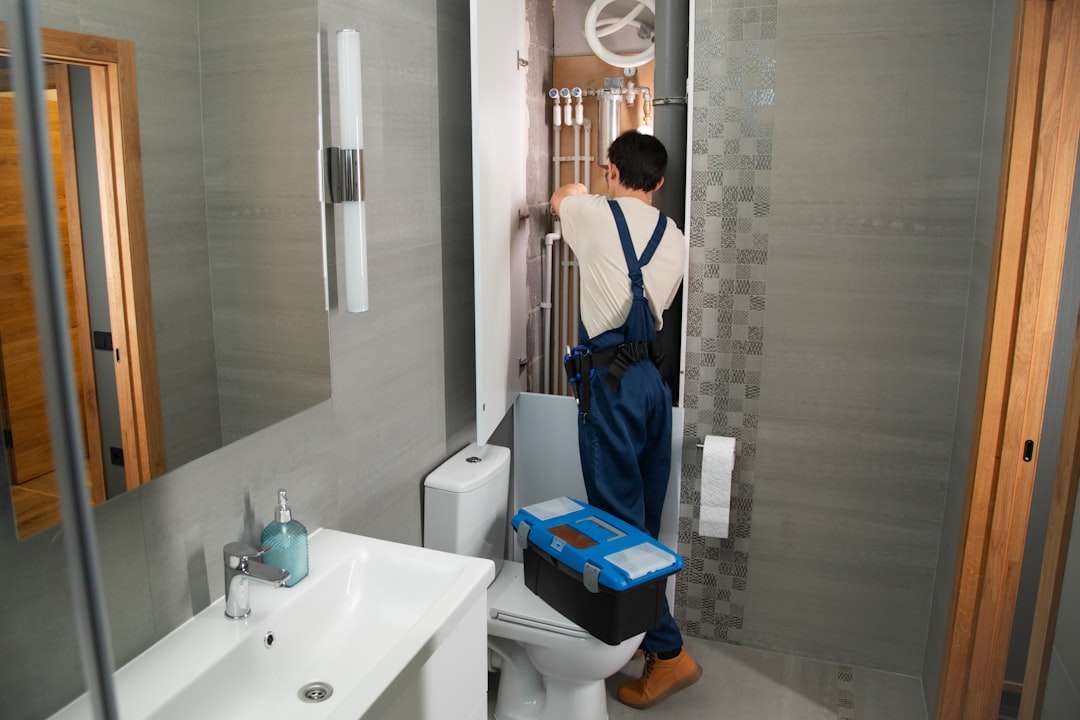Cost to Install Bathroom Plumbing - Professional Insights
Price source: Costs shown are derived from our proprietary U.S. construction cost database (updated continuously from contractor/bid/pricing inputs and normalization rules).
Eva Steinmetzer-Shaw
Head of Marketing
Understanding the Cost to Install Bathroom Plumbing
For construction professionals planning a bathroom remodel or new build, understanding the cost to install bathroom plumbing is crucial. Installation costs can range from $3,500 to $20,000 depending on the scope and complexity. This guide breaks down the variables affecting costs and provides insights to help keep your project on budget.
Key Factors That Drive Bathroom Plumbing Costs
Several factors influence the cost of bathroom plumbing installation:
- Fixture count and quality – Costs vary significantly between basic and luxury fixtures.
- Pipe material – Options like PEX, copper, and PVC each have different cost implications.
- Layout complexity – More complex layouts increase labor and material costs.
- Accessibility – Difficult-to-access areas can add to labor costs.
- Local code upgrades – Compliance with local codes can affect costs.
- Permit and inspection fees – These are necessary and vary by location.
Typical Price Ranges in Portland Residential Projects
Based on recent data, typical costs are:
- Basic replacement of existing fixtures: $3,500 – $5,000
- Mid-level remodel with partial re-pipe: $6,500 – $9,000
- Full luxury bath with layout changes: $10,000 – $20,000+
These estimates include all necessary components and reflect current market prices.
How to Generate Precise Estimates
Using advanced tools and databases, professionals can generate accurate estimates by:
- Capturing project scope and specifications accurately.
- Referencing up-to-date supplier pricing.
- Ensuring compliance with local codes.
Pro Tips for Construction Professionals
- Order fixtures early to avoid delays.
- Bundle tasks to reduce labor costs.
- Choose flexible materials like PEX for retrofits.
- Insulate hot water lines to improve efficiency.
- Document installations for future reference.
Hidden Costs to Consider
Be aware of potential hidden costs such as:
- Water heater upgrades for increased capacity.
- Structural reinforcements for heavy fixtures.
- Mold mitigation when removing old materials.
Case Study: Efficient Project Management
A recent project involved a 1920s bungalow upgrade with a budget of $7,850. By using efficient planning and up-to-date pricing, the project was completed on time and within budget.
Why Choose Professional Estimation Tools?
- Precision: Accurate estimates reduce financial risk.
- Speed: Quick turnarounds improve project timelines.
- Integration: Seamless conversion from estimates to project plans.
- Accountability: Transparent pricing and documentation.
Next Steps
For precise cost estimation, explore professional tools and resources to streamline your project planning and execution.
Digging Deeper: Labor vs. Material Breakdown
In typical projects, labor accounts for about 55% of costs, while materials make up 40%. Understanding this breakdown helps identify potential savings.
Smart Savings Without Cutting Quality
- Select value-engineered fixtures to save costs without sacrificing quality.
- Keep fixtures in the same location to minimize labor.
- Schedule inspections efficiently to avoid downtime.
Job Sequencing Advantage
Effective job sequencing can reduce labor hours and minimize change orders, leading to faster project completion.
Real-World Success: Efficient Project Management
A recent project successfully reduced costs by aligning tasks and locking in material prices early, resulting in timely completion and cost savings.
Your Path Forward
Explore professional resources to ensure accurate cost estimation and efficient project management for your next bathroom plumbing installation.

